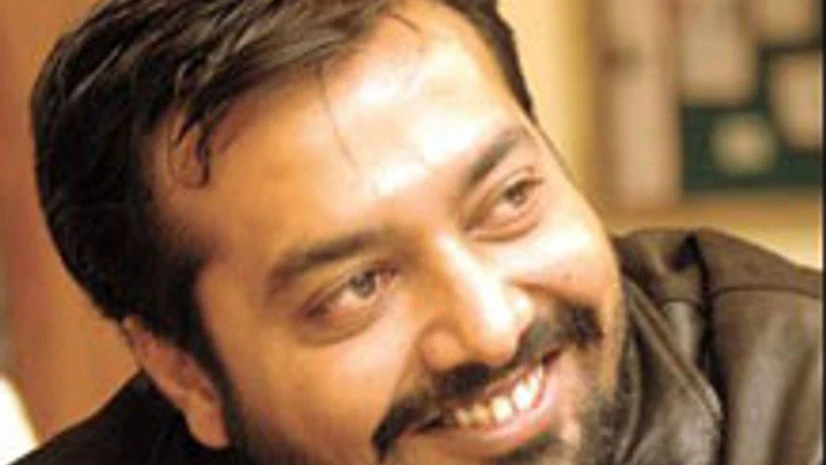The short film referred to in this article was wrongly named. The correct name has subsequently beein inserted
Dear Anurag Kashyap,
I should ideally begin by congratulating you, and add to the compliments that have been pouring in. Social media is atwitter with excitement, and people are hailing it as “brilliant”, a “must-watch for every girl/man” and even, according to one news website, “profound”. “That Day After Everyday,” your new short film about sexual harassment of women in India, is indeed very powerful but then again, I would expect nothing less from the auteur of Dev D and the Wasseypur chronicles.
More From This Section
To those of you who have not seen it yet, the 21-minute film appears to tell the viewer that women should not be cowed down and should fight street harassment, even literally, if it comes down to the wire. So you have three middle-class women who are told from the beginning that it is better if they ignore the louts hanging around their neighbourhood who have been troubling women. The reasons are all too familiar: the men will retaliate, they know where you live, the more you provoke them, the worse it will be for you.The milieu is captured perfectly, the dialogues hit home.
The women, no shrinking violets though they are dressed “modestly” (If they had been wearing body-hugging clothes perhaps viewers would have found it harder to sympathise with them, Mr Kashyap?), are initially forced to take to their heels when, on protesting, they find themselves surrounded. The tide turns when one of them elbows a man who has been pushing himself against her body on a bus and inspired by this, and a pep-talk by their self-defence instructor, the girls take on the local rowdies. In a realistic version of a Rajnikant-esque moment (no dishum-dishum, no flying through the air), the girls manage to bring the men to their knees, literally. The husband who exhorts his wife to ignore the ruffians in the first sequence is now reformed and praises his wife. All loose ends tied, everybody’s happy.
Now please pay close attention here, Mr Kashyap. I am neither saying that women should be silent and ignore attacks on them, nor am I disagreeing with the premise that women should be strong, and encouraged to fight back because you’re damn right, they should. I will even suspend judgement about the outcome of a physical fight between three women and four men, and grant you that it need not always go in the latter’s favour.
My biggest problem, Mr Kashyap, lies with the crux of your film, those “powerful” lines mouthed by a cigarette-smoking Sandhya Mridul ((because that’s what “powerful” women are like, silly), which is supposed to be the turning point in the film. When the girls ask her when they too will be ready to fight back, she has this to offer: Jab tum darna band kardogey, tab tum tayyaar ho, ” and “ Taakat shareer main nahi, tumhare man main hai. ” And my favourite: “ Agar tumne man bana liya, toh koi kuch nahi kar sakta ”.
So that, according to you and your scriptwriter, is why we women continue to be victims of harassment every day. It is because we don’t think we are strong enough, because we have not made up our minds that we need to fight back, because we do not feel “ready”. Damn. I could have sworn it was because we live in a chauvinistic, patriarchal society where men are encouraged to treat women as objects and to give them no respect, a society where sexuality is repressed even in the 21st century and allowed no healthy outlet, where governments and the police force have failed, time and time again, to protect its women. Damn, damn, damn.
With all due respect, Mr Kashyap -- and believe me, I genuinely respect your skills as a filmmaker -- I beg to differ. It is very convenient to say, especially if you are a man, that men continue to harass women because women choose not to retaliate, and the only solution is to physically attack the perpetrator. When a thief has successfully made away with his loot, we do not tell the owner of the house he robbed that he is a twat who deserved it, all because he did not punch him in the face and prevent the thief from escaping. We are not so silly as to pronounce that murders are multiplying because other victims did not grab the nearest weapon and attack their perpetrator before that fatal blow. No, we expect the police, and the state machinery, to come to our rescue and proceed according to the rule of law. Why then, Mr Kashyap, is it that in this crime, and this crime alone, you allow society and the state to abdicate their responsibility so conveniently, and lay the onus of both prevention and resolution squarely on the shoulders of the victim, by making them believe something as ridiculous as “If you make up your mind, nothing will happen to you.”? Sounds to me too much like a certain politician declaring, “Poverty is a state of mind.”
You, Mr Kashyap, are a filmmaker known to push boundaries and challenge convention in Hindi cinema, and you had a golden opportunity to portray how we as a society need to address the despicable act of sexual harassment. Instead, through “The Day After Everyday,” you have chosen to take the easy way out and given us a slickly packaged version of the same old line peddled by sexists everywhere: That the solution lies with changing the mindset of the victim, not the perpetrator.
-A disappointed fan

)
